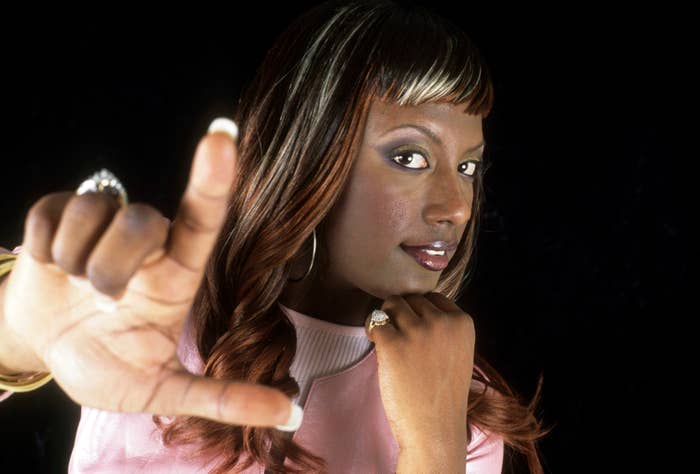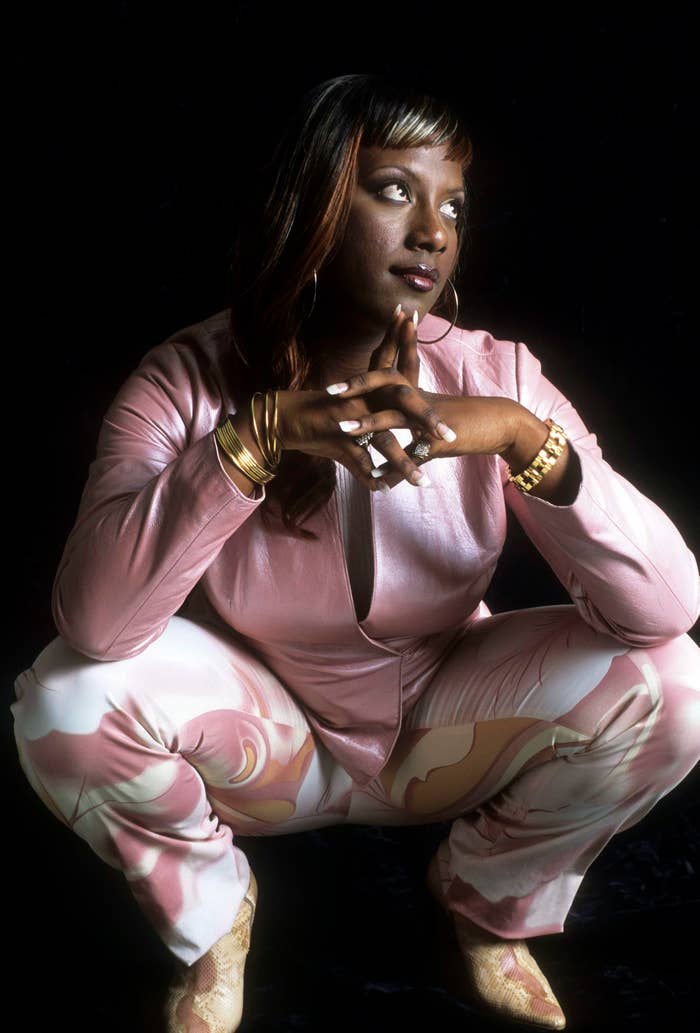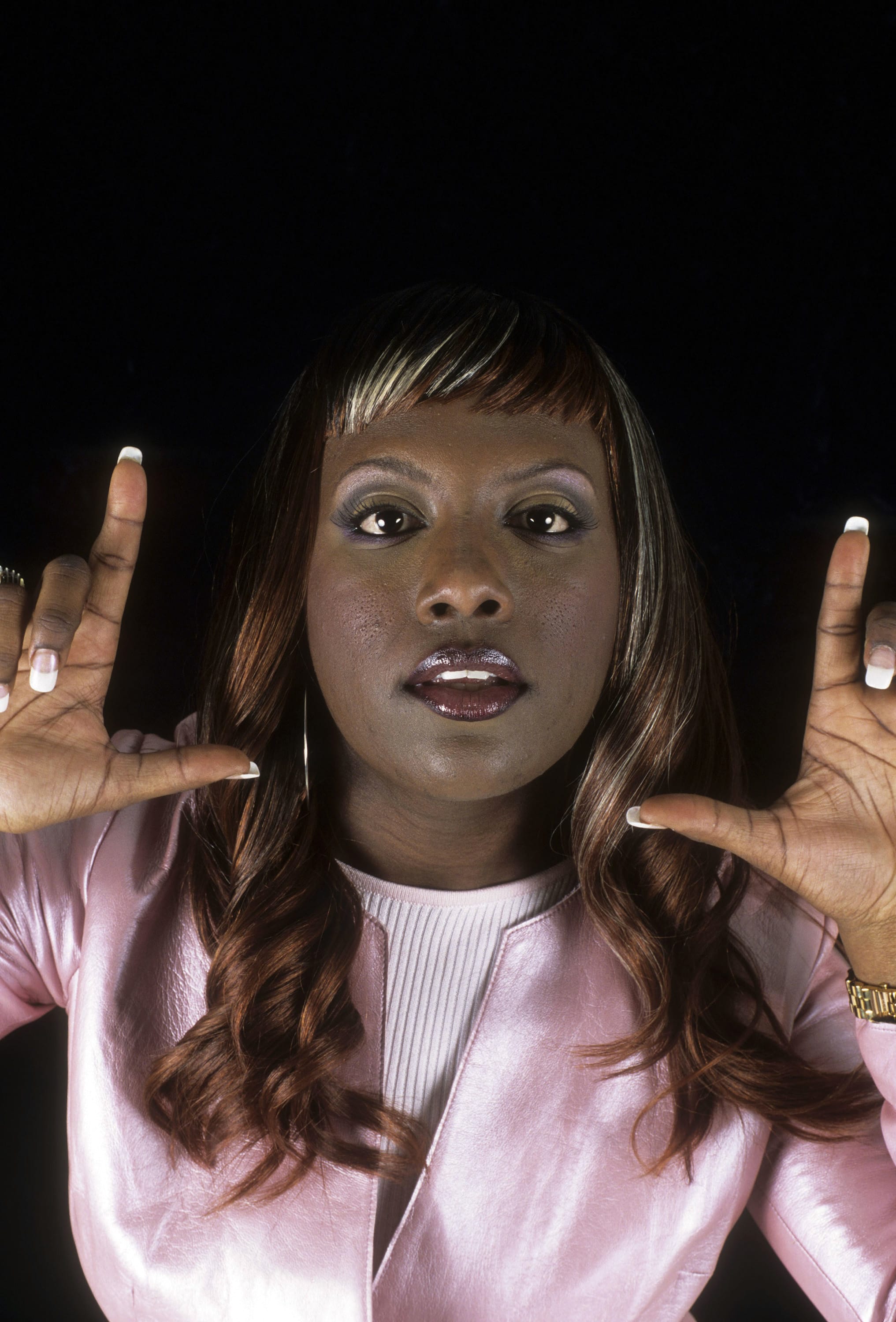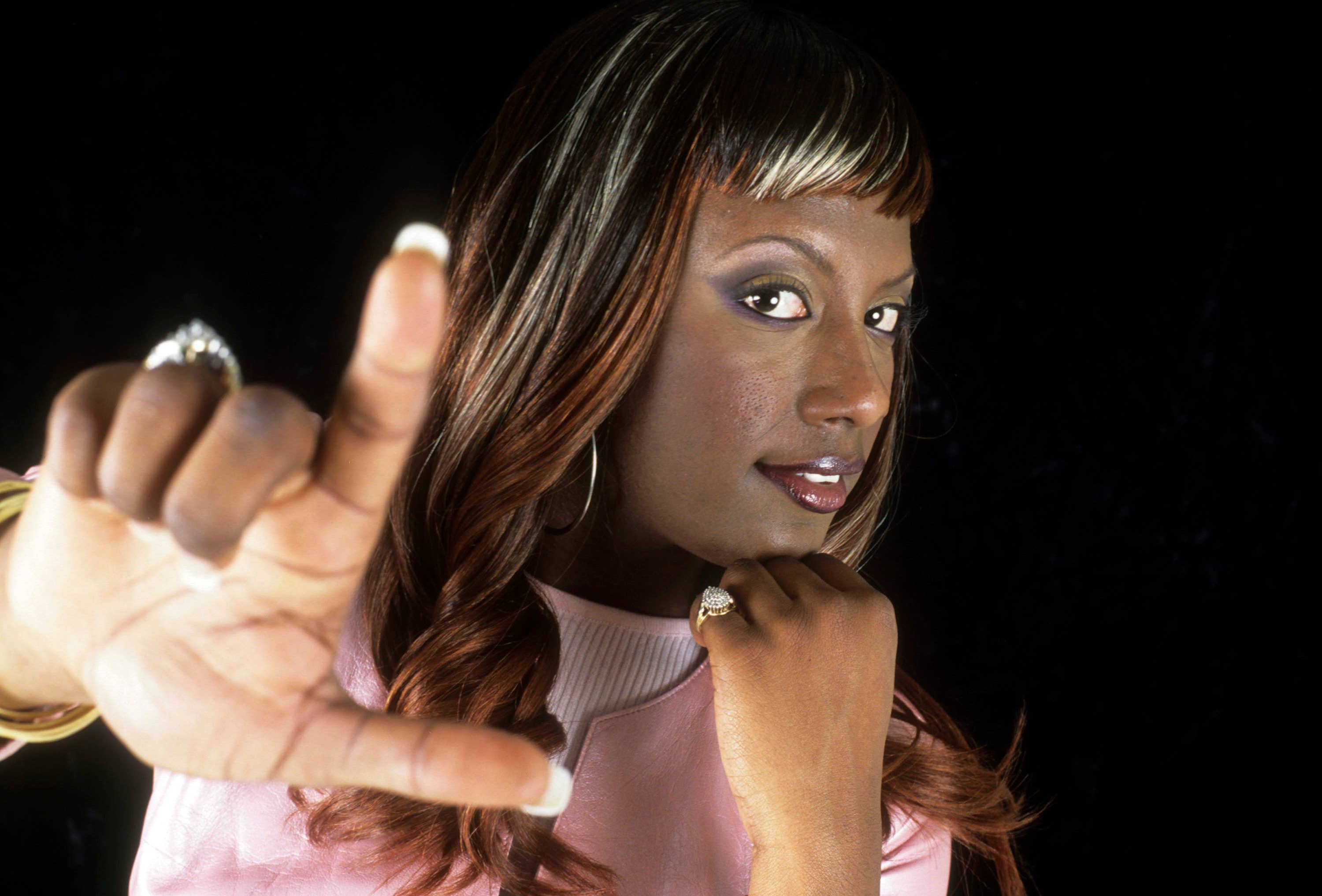
As a teenager, Lola “Gangsta Boo” Mitchell proved she was a Memphis titan with nary a peer to match her tenacity. On Three 6 Mafia’s debut album, Mystic Stylez, the angst, ego, and horrorcore raps of DJ Paul, Juicy J, Lord Infamous, Koopsta Knicca and others combined don’t feel as visceral and shocking as Mitchell’s own bombast of shock, wit, and horror.
At 15, she could up the ante on threats to faceless enemies or portray herself as a queenpin not to run afoul of, both with equal conviction. On the drug-laden “In da Game” from Mystic Stylez she raps, “Dope game, my game, hoes lame, it’s a shame/How the Gangsta Boo is gonna click up on you bitches, mane/Gangsta Boo is not the kind of bitch that will like get punked out/Looks are so deceivin’, stupid bitch, you wanna f-izz-ind out?”
Showcasing herself as a feared woman amongst men became her calling card, easily balancing a tightrope of violence, threats, and candor with humor and bravado aplomb. She was wholly Memphis and, before she even graduated high school, Gangsta Boo could be mentioned alongside Tennessee rap royalty like 8Ball and MJG and Skinny Pimp.
Mitchell, who passed away at her home in Memphis on Sunday at 43, represented a connection for Southern rap fans past and present. Her tone and energy can be found embedded throughout acts who either run through the gothic trap creations Three 6 crafted and perfected in the late ‘90s to early 2000s to the latest era of steely Memphis rappers, from Duke Deuce’s punchy drawl to GloRilla’s slithery flow.
Alongside New Orleans’ Mia X and frequent collaborator La Chat, Mitchell stood out as a confident, crass, rapid-fire spitter who routinely outshined her male counterparts, in a group or otherwise. No soliloquy of hers felt right without hearing her “yeah hoe” ad-lib punctured right behind it and, over time, it became an oft-used overture for any rumbling piece of production born from the influence of Juicy J and DJ Paul.
“I know I’m the blueprint, the Boo-print,” she told N.O.R.E. and DJ EFN during her appearance on Drink Champs last September. “But when I listen to myself now at my age and go listen to the old shit, ‘Yo bitch, you was rapping like that at 14? It’s very extraordinary, it’s not normal. I was the inspo. I’m not compared to anybody, people are compared to me.”

Gangsta Boo got her break when her middle school classmate DJ Paul noticed her skills at a school talent show. The two soon began collaborating and in early 1994, Paul released “Cheefa Da Reefa,” featuring a then 14-year-old Boo riffing through a day in her life with a man, smoking weed and drinking Tanqueray. She quickly developed a fanbase. “People kept requesting me,” she toldPassion of the Weiss in 2012. Through fan demand in Memphis, Paul not only routinely added Boo to mixtapes alongside Lord Infamous, the love prompted Paul and later Juicy J to add her to the Three 6 Mafia lineup.
The legendary crew consistently blurred the lines between black-and-white horror and eye-popping color. When Gangsta Boo entered the frame, it felt like colors and time bent to her will. Not just because she held her own, wearing heels and furs in a crew full of roughnecks—“Whenever she enters the room of a track, the whole of femme Memphis enters with her,” Zandria F. Robinson wrote in a 2020 tribute to Boo’s 1998 track “Where Dem Dollas At?!”—but because she could also cut through the noise of a posse cut and make herself heard; over the brassy horns of “Who Run It,” for example, she throws elbows with an unmatched energy.
Boo would spend six years as a member of Three 6 Mafia before splitting from the group in 2001, finding spirituality, and even changing her name to Lady Boo. At 21, she didn’t feel like there was an issue between her, Paul, or Juicy, but rather that she needed some space while handling a bout of depression. “There’s no problem,” she told MTV at the time. “Sometimes people grow apart, and basically that’s what it is. There’s no drama, no beef. It’s still the same. I just kind of grew apart, and I’m not doing things that they’re doing. I’m not cursing in my music no more. We just grew apart like a marriage.” Later, it emerged that there were financial problems behind the scenes as well (“They know they fucked people out of money; everybody in the world knows it,” she told the Memphis Flyer in 2003), but Boo would go on to reunite with Paul and other Three 6 members sans Juicy J as part of Da Mafia 6ix. By then, she’d gained even more appreciation from those who fell in love with her raps as a teen.
In her post-Three 6 years, Mitchell’s gravity amongst her Southern peers was more than established, a decorated veteran who often went out of her way to extend an olive branch to the next generation of women in hip-hop. She worked with Speakerfoxx routinely before the DJ’s sudden passing in December 2018 and in recent years, had collaborated with longtime friends such as Drumma Boy. Recently, Latto featured her on the remix to “FTCU,” a flip of “Tear Da Club Up ‘97,” which saw Gangsta Boo stacking expertly written threats for 23 seconds: “‘Bout a dolla, make you holla/When my soldiers get ya, I don’t like that violence stuff/But I believe in gettin’ buck,” she raps.
“We first met around 2013ish,” BeatKing, the Houston rap stalwart, tells Complex. “Gangsta Boo, if you knew her personally, she was very outspoken, she’d been through a lot in this industry. When we met, she was an asshole!” Through Twitter, BeatKing and Gangsta Boo would become kindred spirits who crafted two collaborative projects, Underground Cassette Tape MuzikVol. 1 and Vol. 2, as the platform became one of her signature vehicles to get thoughts out and pull in future collaborators.
“I feel like it’s dope when the new generation of artist collab with artist that paved the way type shit,” she tweeted on November 30. “If they still outside, making moves & respected. It’s called bridging the gap.”
“I explained to her how much I was a student of [Three 6 Mafia] and suggested we do a song together,” BeatKing continues. “I sent her some beats and she said, ‘You produce just like Juicy J and Paul! We did a song together for my Gangsta Stripper Muzik2 album; the rest was history. She opened up doors for me and helped people take me seriously as an artist beyond making club music.”

Despite prior disillusion with the music industry, Gangsta Boo saw the future. She extended love and support to GloRilla through direct messages on Instagram more than a year before the young Memphis native scored a life-changing hit with “FNF.” Beyond being a chameleon on the microphone who could go from gold grill smiles to cutthroat threats, she was human—unafraid to voice her disillusionment with the music industry yet championing new acts to go further than she did. In the same Passion of the Weiss interview, Mitchell outlined how she wanted her legacy to be remembered:
“I just want to be respected,” she began. “When it’s all said and done, I want to be remembered as Gangsta Boo from Three 6 Mafia. The first lady of Three 6 Mafia. The first lady of crunk music. The first lady who brought a platinum plaque back to Memphis. The first lady who brought a gold plaque back to Memphis. I’m the only female rapper in Tennessee that has ever did that and probably I will be the only one that ever will. I just want to be known as someone that put her heart into her music and who really really appreciated her fans.”


